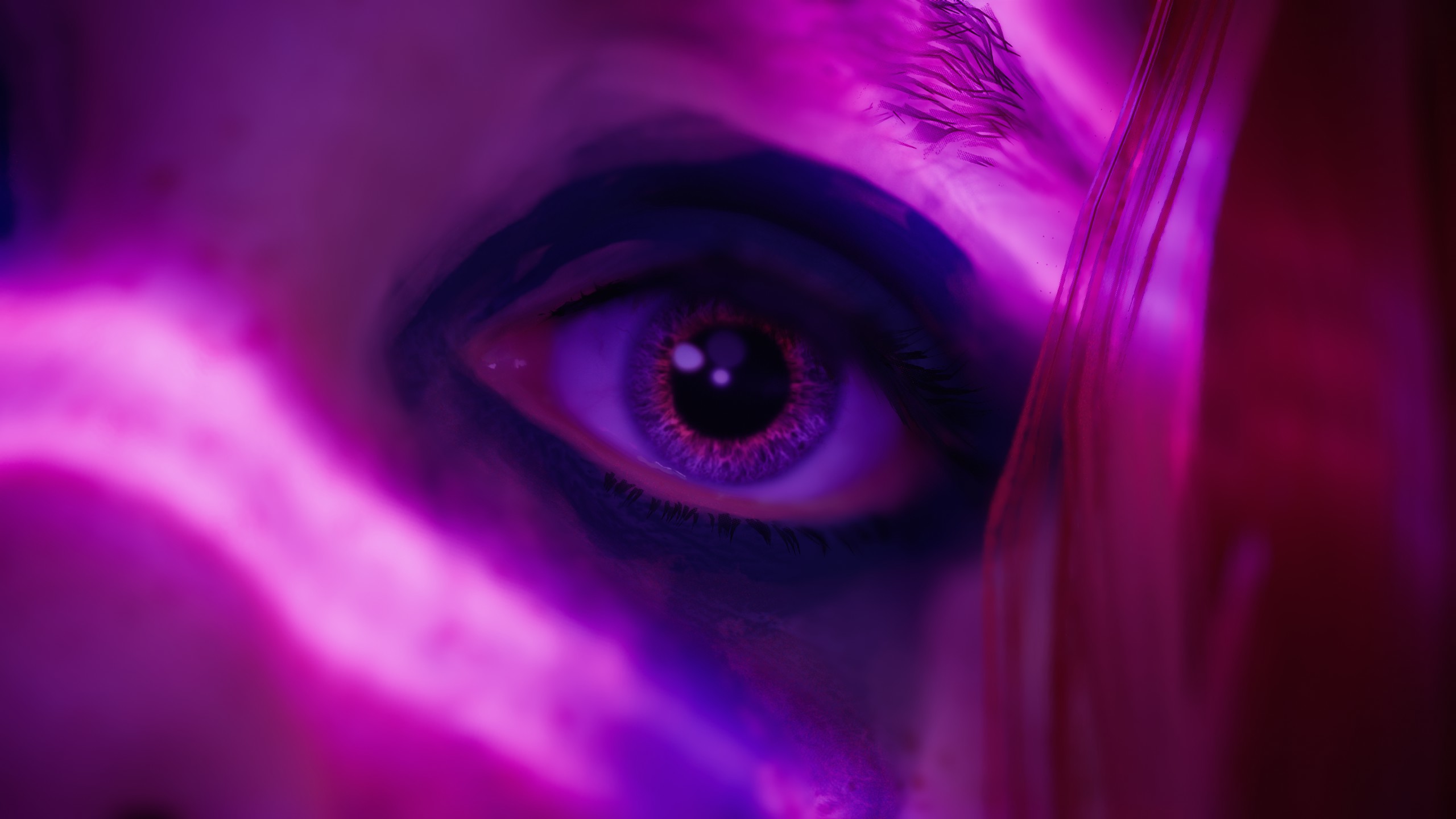
Note: This review contains spoilers for both Tape 1 and Tape 2 of Lost Records.
When I sat down to play Lost Records: Bloom & Rage’s Tape 2, I was surprised just how much anticipation I felt. Over two months since the release of its first part, Bloom, the quartet of punk girls finding themselves through riot grrrl had sunk into my heart. How could they not when I saw so much of myself—who I was, who I wanted to be—in them.
What is it? A choices-filled narrative adventure through '90s girlhood nostalgia
Release date: Part 1 February 18, 2025; Part 2 April 15, 2025
Price: $40 / £36
Multiplayer: No
Developer: Don't Nod Montréal
Publisher: Don't Nod
Reviewed On: RTX 3060 Ti, Intel i7-10700F, 32GB DDR4
Steam Deck: Verified
Link: Official site
Tape 1 ended in a messy but emotional climax that revealed Kat, the weird girl of the group who makes zines and feels like the small town is killing her, is indeed dying. Leukemia. Much in the mold of Stand By Me, it was obvious this would be everyone's last summer together, though with supernatural elements and many questions left unanswered, a part of me hoped that we could amend this past, record over the tape, or rewind to some point that would change things. Tape 2, Rage, instead leaves mostly dead space.
I want to draw out the wordplay. It’s mimetic how Tape 2 arrives after delays that belie some development problems. Bugs give it away, and so does the short length. Tape 2 is not a whole second part, but a third act. It feels like its flame is burning up too bright, too soon. And so is Kat’s, right? There’s some probably unintentional meaning there, and it affects me, though I’m left wanting to see all that could have been if both Don't Nod Montreal and Kat had more time.
Tape 2 adds very little new to engage with. As in Bloom, I pick up intricately modeled objects around the levels, examine them, and find clues to the story and puzzles. I also use Swann’s camcorder to record these memories and edit together videos. There are gestures towards some iteration that could’ve been (in one scene Nora misremembers a story and time is rewound like a tape) but there is ultimately very little play in Tape 2.
At least half of the four hours must have been spent in cutscenes, which did still offer me dialogue choices that continued to shape my relationships to each girl, but were edited together with more noticeable gaps and continuity errors. It starts to look like an unintentional '90s homage to Xenogears and its infamously curtailed disc 2 that was all visual novel instead of JRPG.
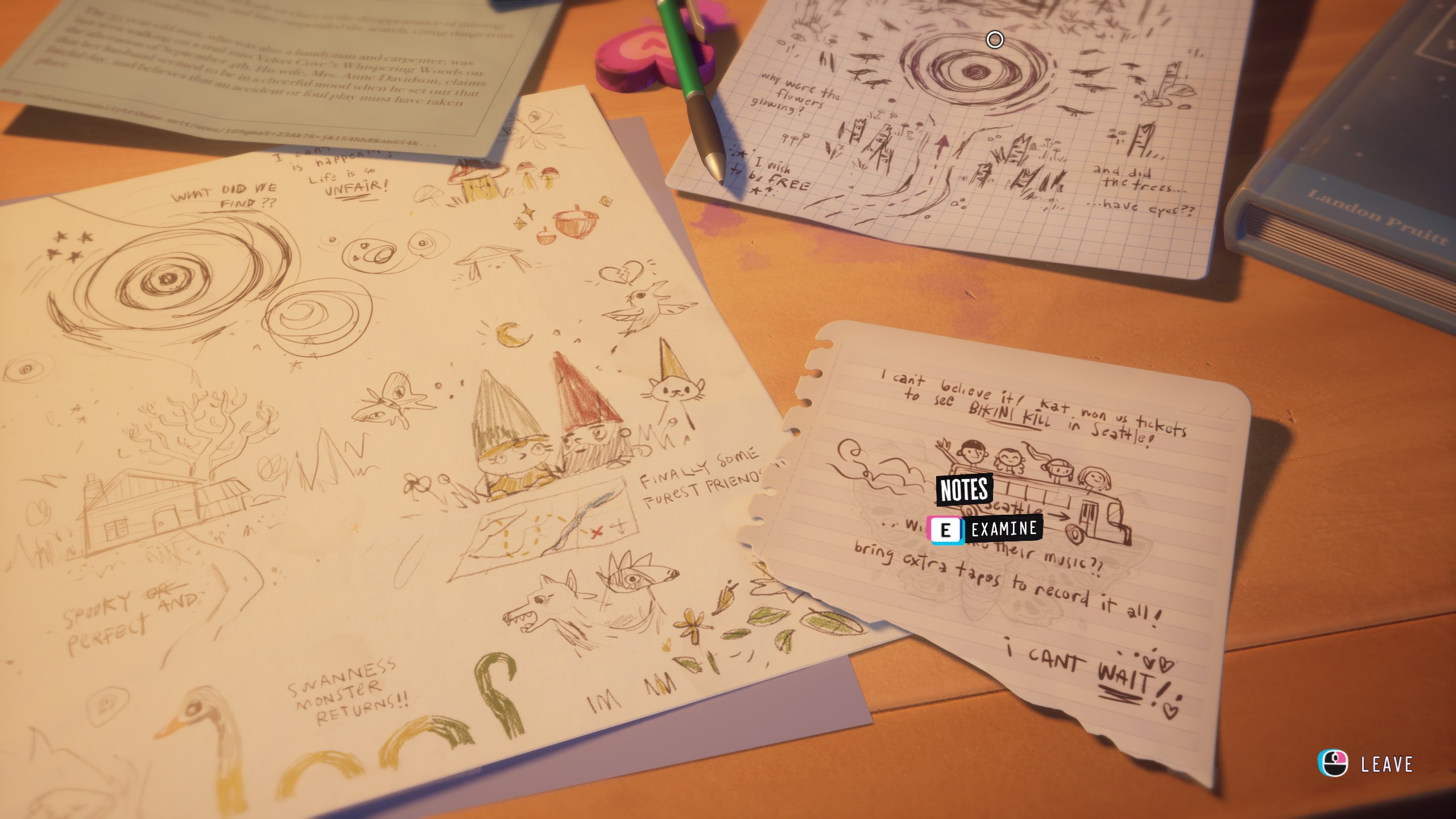
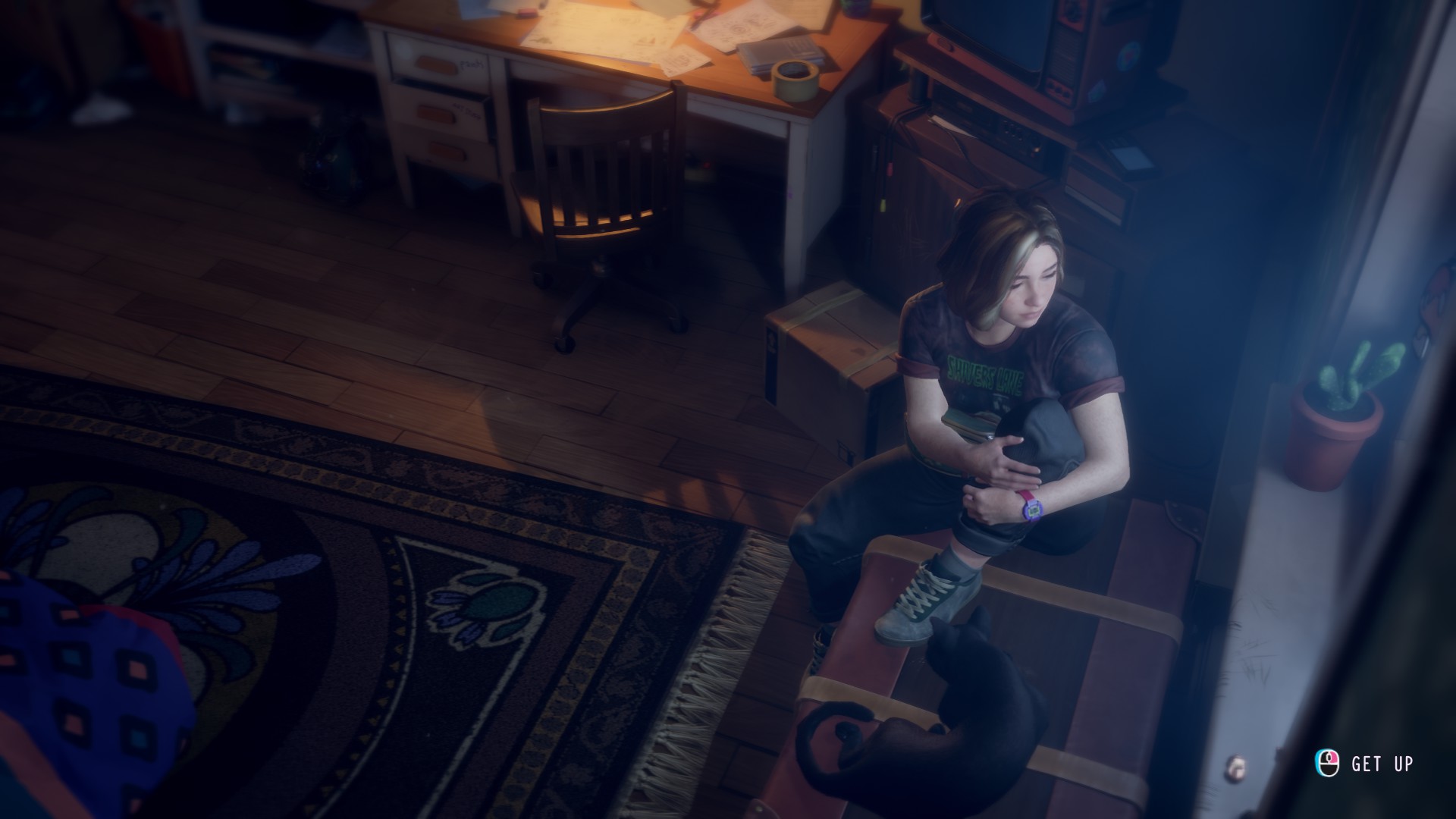
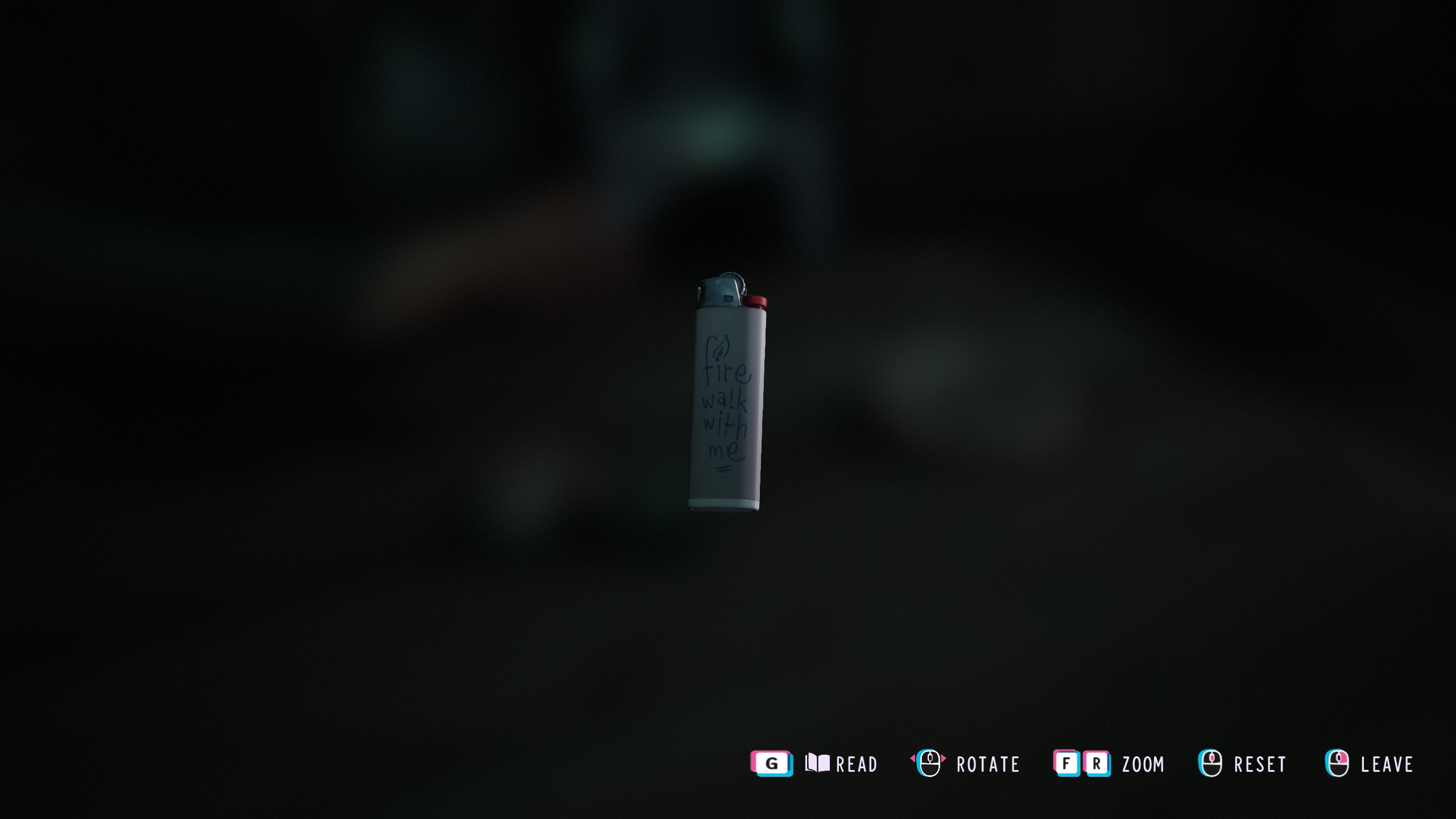
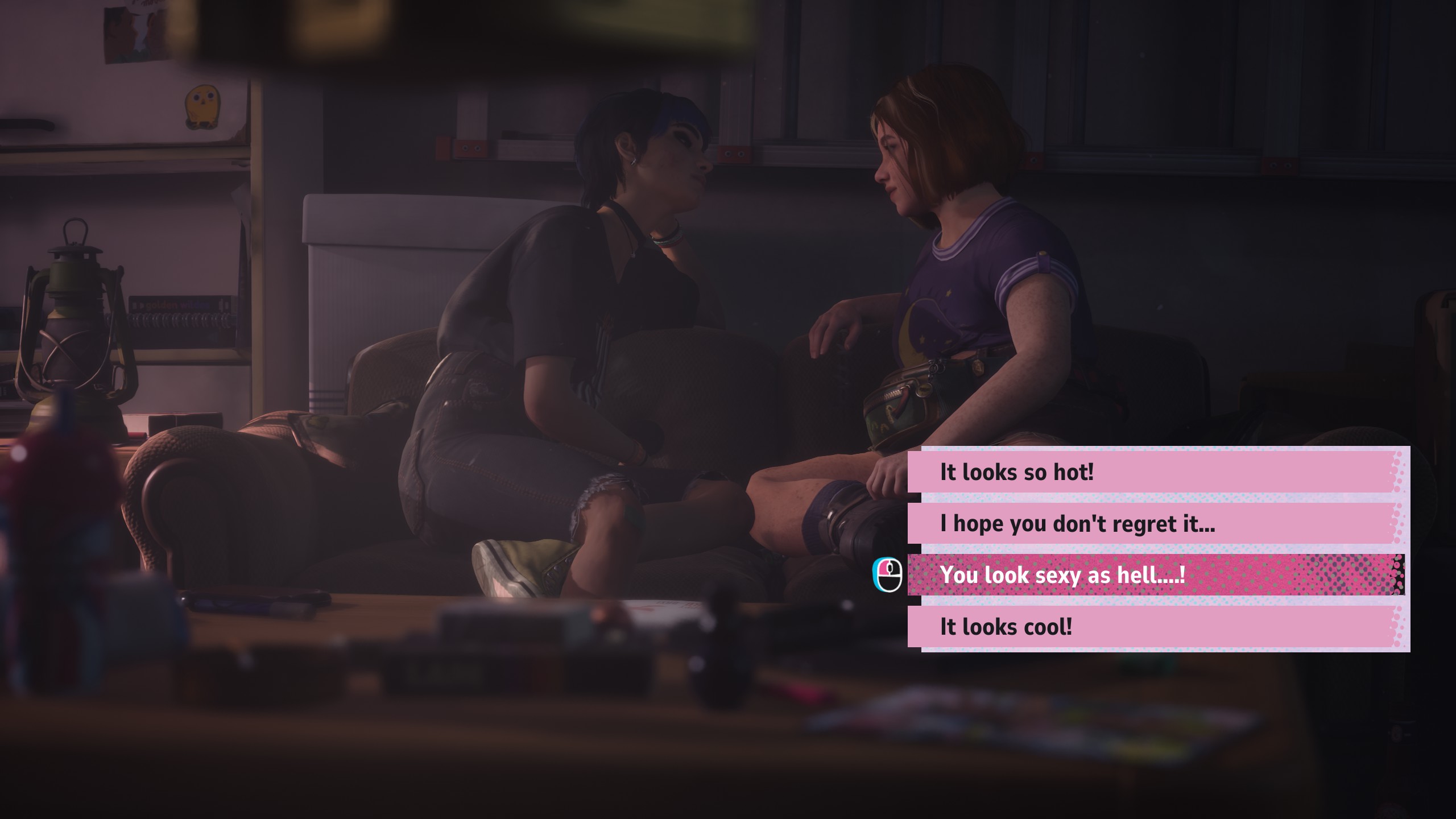
While there's little for me to actually do, Tape 2 does reach its narrative and thematic conclusion. It still feels too fast, but this is almost appropriate given Kat's dwindling vitality. And while I have not yet read closely the many branches that the ending accommodates to consider how much can change in response to the player, I can see how the ending is shaped around the relationships I chose to prioritize. I don’t think there’s any bad ending, but some emphasize the bigger themes the game is interested in. And those are worth talking about.
It shows gay bashing and intimate partner violence as much a part of a nostalgia for the '90s that remains unspoken, but not unremembered
It is not just Kat who must die. In the finale each girl is beaten, chased, harassed, and torn from girlhood, the impetus for their coming-of-age being the death of their innocence to the violence in the world. This grows from the discordant undertones of nostalgia heard in Tape 1. It shows gay bashing and intimate partner violence as much a part of a nostalgia for the '90s that remains unspoken, but not unremembered.
Lost Records makes its protagonists feel as viscerally strong as the movement—empowered by riot grrrl and feminism and makeup and each other—and as weak as the children they are—powerless to remain together once Swann’s family moves away at the end of the summer. There is another axis. Not powerless, but consigned to be abused. Ultimately, what the quartet rebels against with their songs, their hair, their makeup, their clothes, their friendship, and their intimacy is the violence of men.

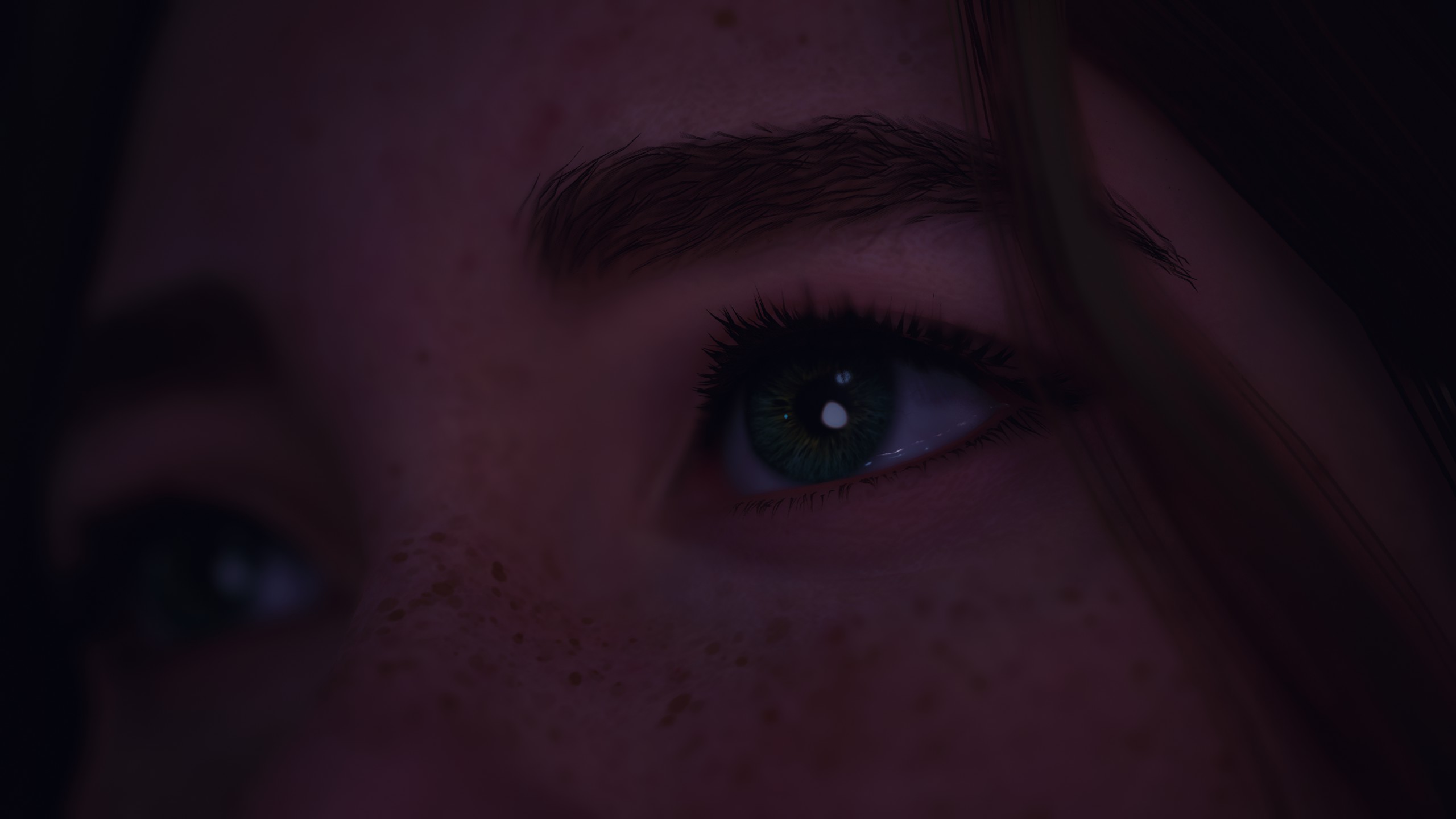
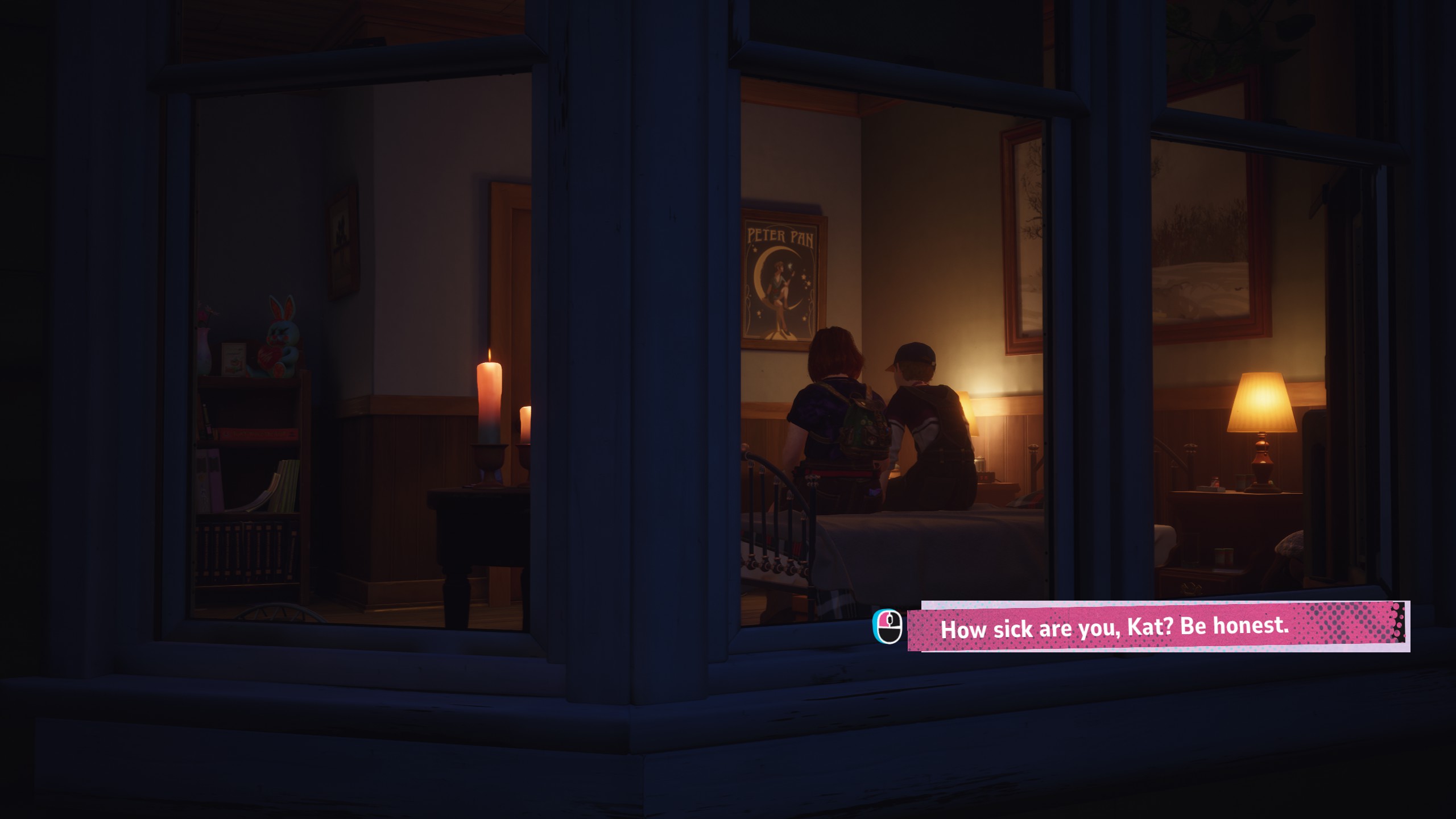
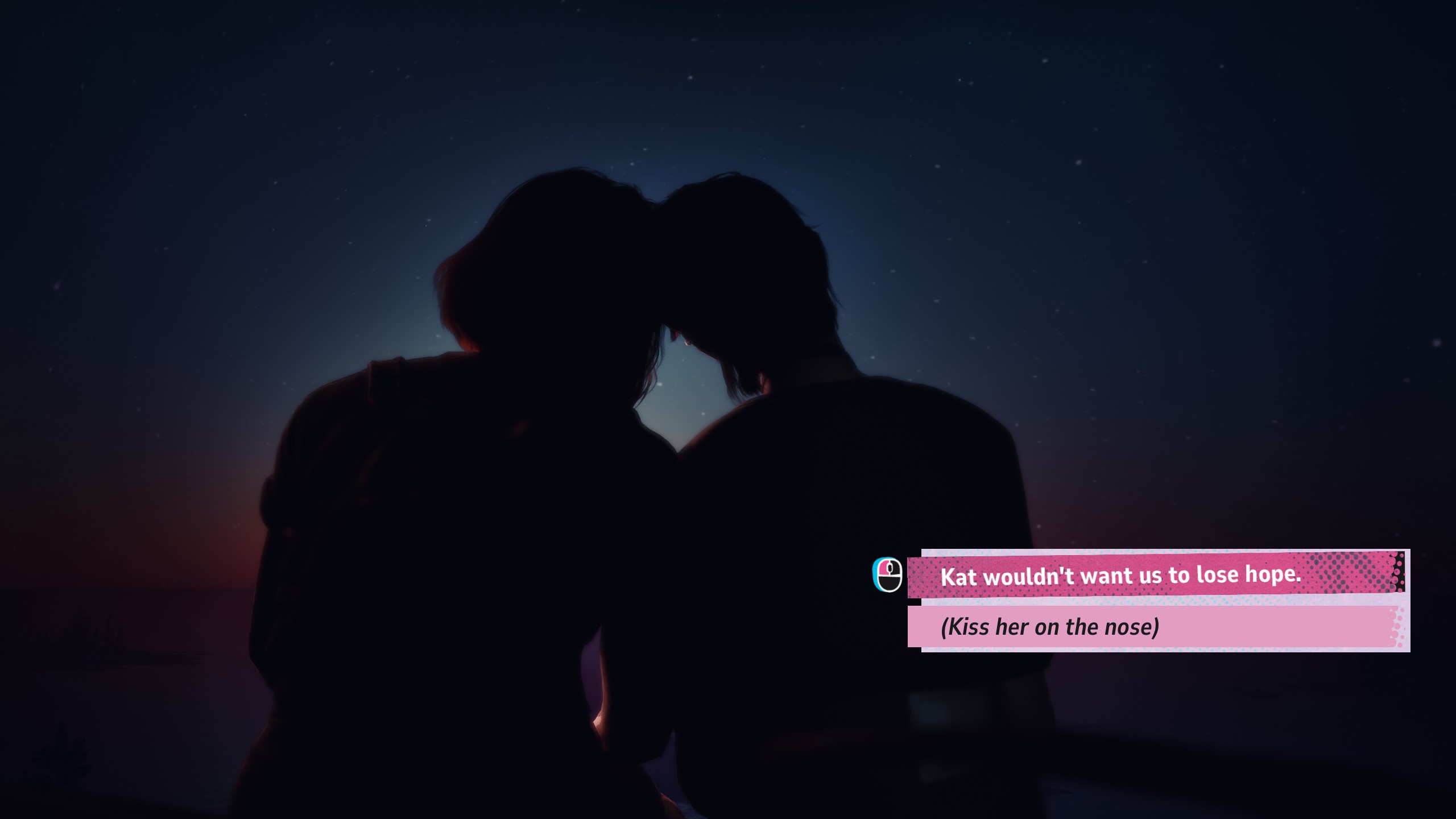
In the present day Nora recalls how we snuck into Kat’s house, broke her out to watch the meteor shower. She offers me a cigarette outside the bar but I decline. I pick up her lighter, turn it over. When she was 16, Nora sang about how small the man was who called her a dyke. She had probably seen Fire Walk With Me when it came out a few years earlier, far too young to understand but woman enough to know what Lynch saw beneath Americana. Now 27 years later she has scratched the title, Laura Palmer’s fate, onto another disposable body.
And this is why Lost Records’ nostalgia in Tape 1 has been resonant to so many queer and trans women playing it this year, why these memories are different from the conservative kind snaking through games culture today. It’s all ephemeral. We don’t hold onto it. Don’t repeat those violences. We realize something like no other has been missing since we were young. Something that can’t be replaced.
And it's why Tape 2's fire is as much a form of nostalgia as the trinkets and movie rentals. They say boys will be boys: Log on to dox a streamer, harass a dev, rage against a world that let the ashes fly. They never forgot the violence of the ‘90s. They just miss the flame.







